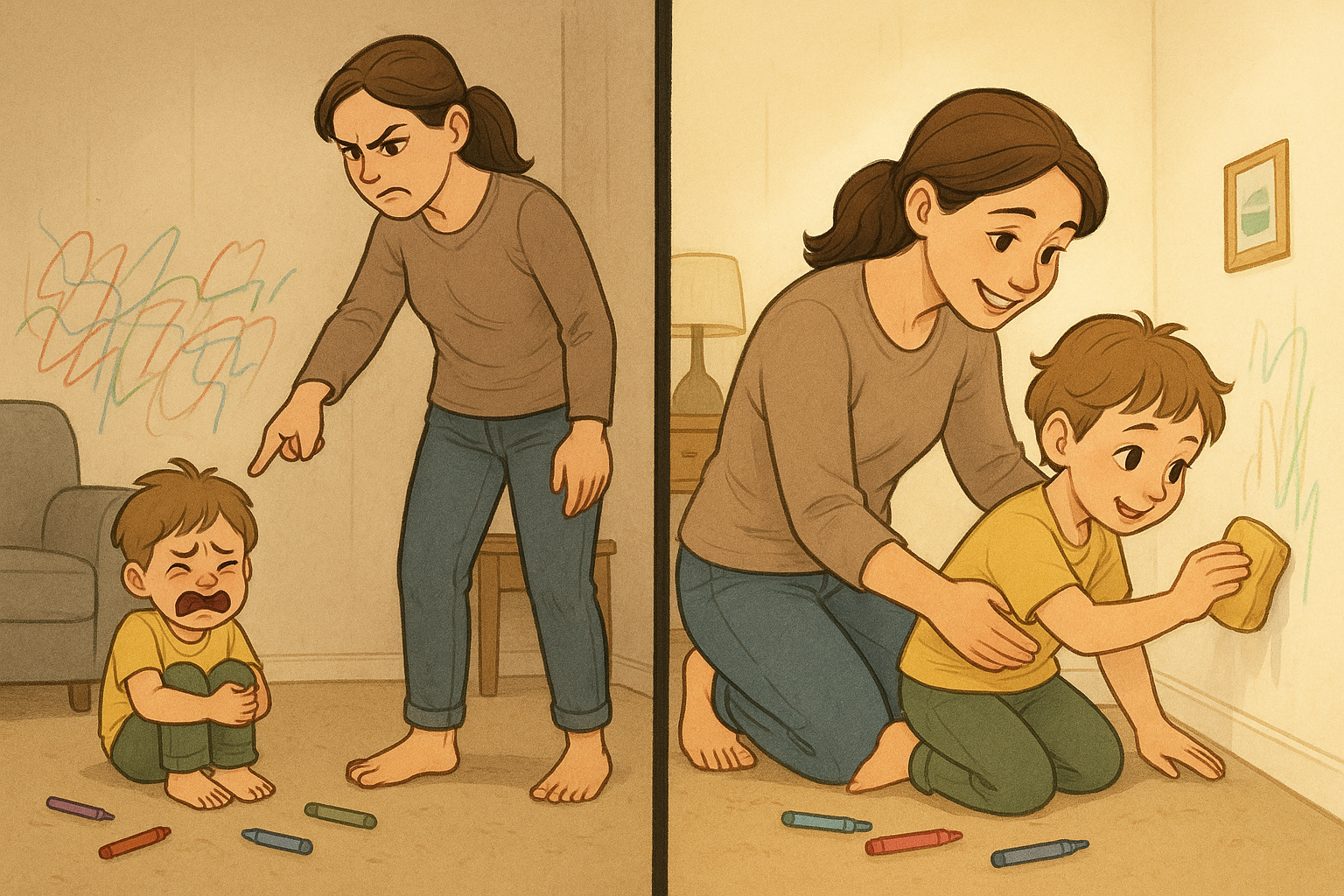As parents, we've all been there – marker on the wall, toys scattered everywhere, or siblings in another heated argument. Your first instinct might be to dish out punishment, but what if there's a better way? Welcome to the transformative world of problem-solving parenting, where mistakes become learning opportunities and children develop the crucial skill of taking responsibility.
Why Punishment Falls Short in Mum Life
Punishment might stop unwanted behaviour in the moment, but it rarely teaches children what they should do instead. Think of punishment like turning off the Wi-Fi of learning – it stops the connection but doesn't provide the password for better behaviour.
When we focus solely on consequences without guidance, children often feel defeated rather than empowered. They learn to avoid getting caught rather than understanding how to make better choices.
Start with Clear Expectations and Natural Learning
The foundation of effective problem-solving begins with clarity. Instead of assuming your child knows the rules, state them clearly: 'Markers are for paper, not walls.' When mistakes happen – and they will – guide your child through making amends.
If your little one has decorated the wall with their artistic expression, try saying: 'Let's get a sponge together. I'll show you how to clean this off.' This approach teaches repair skills whilst maintaining your connection.
- Natural consequences often teach more effectively than imposed punishments
- A forgotten lunch teaches planning better than a lecture ever could
- Experiencing results helps lessons stick without creating resentment
Master the Art of Joint Problem-Solving
For recurring issues or bigger challenges, sit down with your child and tackle the problem as a team. This collaborative approach transforms conflicts into learning opportunities.
Here's your problem-solving toolkit:
- Define the problem clearly together
- Brainstorm possible solutions (encourage wild ideas!)
- Choose a plan you both can live with
- Try it out and adjust as needed
When siblings fight over screen time, work together to create solutions like setting timers, establishing schedules, or planning shared activities. Children are far more likely to follow rules they've helped create.
Building Lifelong Responsibility Skills
Replace your default punishment response with these powerful alternatives:
- State clear expectations beforehand
- Allow natural results when it's safe to do so
- Show your child how to make proper amends
- Problem-solve challenging situations together
This approach teaches children how to fix mistakes rather than simply avoid them – a skill that will serve them well into adulthood.
Remember, every mistake is a chance for your child to practise responsibility, empathy, and problem-solving. You're not just managing behaviour; you're building character.
Supporting your parenting journey requires energy, focus, and patience. At Brainzyme, we understand the demands of mum life and offer scientifically proven plant-powered focus supplements to help you stay sharp and present for these important teaching moments.
Discover how Brainzyme can support your parenting journey at www.brainzyme.com


 DACH
DACH
 FR-BE
FR-BE
 US-CAN
US-CAN



